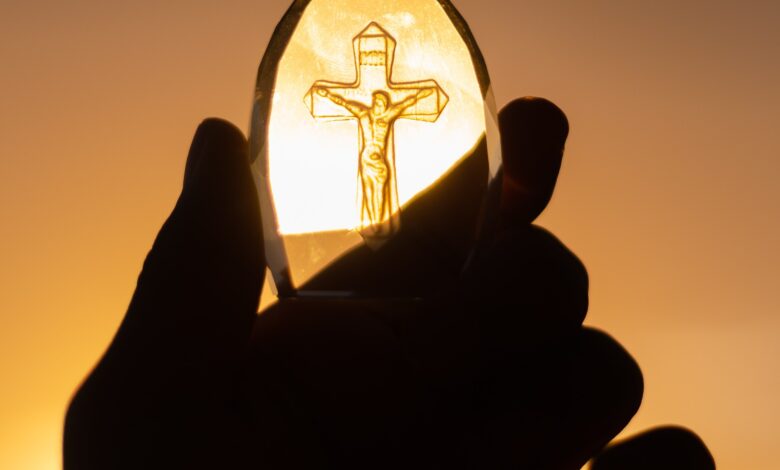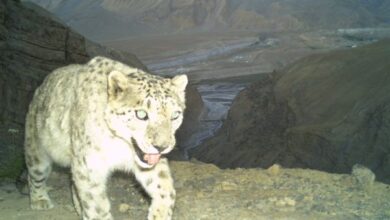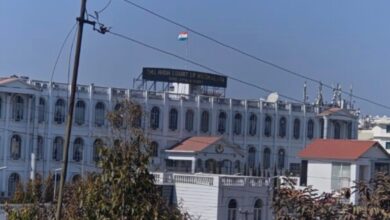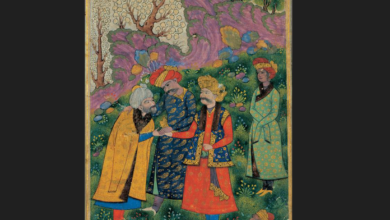There is life in the midst of death
But state of affairs in Meghalaya is not one of life but of death & degeneration

 Throughout the Holy Week, Christians meditate and even perform a reenactment on the suffering and death of the Jesus Christ. Death, or even the thought of it, frets every mortal being, but death does not necessarily connote the end of everything.
Throughout the Holy Week, Christians meditate and even perform a reenactment on the suffering and death of the Jesus Christ. Death, or even the thought of it, frets every mortal being, but death does not necessarily connote the end of everything.
In this reflection, I will proceed from the two Old Testament narratives centering around the two ancient Prophets, viz, Elisha and Ezekiel. The passages are reproduced here in the abridged form for readers to refer. In 2 Kings 4:38-41, “Elisha returned to Gigal and there was famine in that region…The stew was poured out for the men (and women) but as they began to eat it, they cried out, “O man of God, there is death in the pot! And they could not eat it. Elisha said, “Get some flour, He put it into the pot and said, “serve it to the people to eat. “And there was nothing harmful in the pot.” (NIV Bible)
The second narrative in Ezekiel 37:3-10, the Prophet spoke about the valley of dry bones, “…and I saw a great many bones on the floor of the valley, bones that were very dry. He asked me, “Son of man, can these bones live? I said, O Sovereign Lord, you alone know” Then he said to me, Prophesy to these bones and say to them, “Dry bones, hear the word of the Lord!…I will make breath enter you, and you will come to life. I will attach tendons to you and make flesh come upon you and cover you with skin; I will put breath in you and you will come to life…”I looked, and tendons and flesh appeared on them and skin covered them, but there was no breath in them. Then he said to me prophesy to the breath. So, I called out O! breath and breathe into these slain, that they may live. So, I prophesied…, and breath entered them; they came to live and stood up on their feet…” (NIV Bible)
For our non-Christian readers, the prophets and prophetic vocation are common place in ancient Near East and especially Palestine. In simple parlance, the Prophets are soothsayers who foretell the future and are also considered as messengers of the Divine.
However, the institution of Prophecy in ancient Israel had assumed socio-economic and political significance. They were the agents of socio-political and economic change. According to Cedric Starr, “The prophets were the foremost advocates for justice and for them justice is a socio-ethical norm that is used to discuss and critiqued the interaction between different social groups in the biblical communities…The Prophets bring the voice of the oppressed, poor, and marginalize out to the world… The prophets critique and challenge the corrupt social, religious, economic, and political institutions”.
The above biblical stories deal not just with death of individual persons, but the calamity and hopelessness which struck the community or nation. The narrator in the first story spoke of the calamity which was caused by the pandemic. When Elisha, the prophet, returned to Gigal, the entire region was struck by the pandemic for nearly seven years which resulted in deaths, destruction and despair. The food was scarce and poisonous. When the Prophet arranges a meal for his community the food had become poisonous. Therefore, they cried out, “O! man of God there is death in the pot” (2 Kings 4:40) and according to Rev Somen Das, “this is a peculiar but significant expression. They did not talk about poison but death…”
The second story is about the valley of dry bones and here the prophet Ezekiel is dealing with the dry bones of the dead. Metaphorically speaking, the valley of dry bones referred to the period of history when the people of Israel was under captivity of Babylon and that period ranges from 598 BC to 586 BC. The prophet himself was subjected to the brutality of captors and was witnessing first hand to the sufferings of the people under foreign captivity.
The captive tribes of Israel were subjugated to slavery and there were untold sufferings, deaths and losses. Politically they were under foreign rule and the cities were destroyed beyond repair. Their hold on economy was broken as ports and trade routes were taken over by foreign traders. Even the socio-religious life was not spared and the captives were vivid in their expression- “By the rivers of Babylon we sat and wept when we remembered our homeland…for there our captors asked us for songs, our tormentors demanded songs of joy; they said, “Sing us one of the songs of Zion! How can we sing the songs of the Lord while in foreign land? (Psalm 137:1-4)
Thus, both Elisha and Ezekiel are dealing with death, but in different contexts. However, in both situations the Prophets have had to encounter and work among the masses who no longer experienced life, except the pangs of death and destruction.
In his exposition of the biblical narratives, Rev Dr Somen Das expounded that “Death makes one dumb and is dumb itself…The country is experiencing death in social, economic and political life and living. Also, we are experiencing death in our religious and spiritual life. Above all there is the experience of death of ideology-we do not know whose side to take and to stand up and be counted for authentic joy and justice.”
The state of affairs in Meghalaya is not one of life but of death and degeneration. The socio-ethical norms of “kamai ia ka hok”, “ka akor”, “ka tipbriew tipblei” (justice, fairness, equality and mutual respect) which guided our ancestors in their political-social and economic dealings are now being shunted.
Politics and governance in the State is dominated by the neo “high-level tribe” that has assumed political and economic powers and amassing unaccounted wealth at the cost of people. Besides, the politics of fear and hate against the other continue to play out and rein the psyche of the masses. This kind of politics is destructive and can no longer be allowed to rule the roost. We must face the challenges with scientific reason and wisdom. In a democracy there is ample space to engage with others by not compromising our inherent traditional/cultural ethos.
Death followed Jesus Christ since his birth when the ruler of Palestine ordered the killings of all male child below two years so as to crush the messianic conception of hope and liberation among the marginalised sections. Throughout his public activism and everywhere Jesus threw out a challenge against institutions of power and position until the sharp teeth of death snapped him at the court of the High Priest. At this court, it was pronounced that Jesus must die- “One of them named Caiaphas, who was the high priest that year, said, what fools you are! Don’t you realise that it is better for you to let one man die for the people instead of having the whole nation destroyed?” (John 11:49-50). This pronouncement emanates from the self-centred understanding that if this Man (Jesus) is executed his movement for justice, love and freedom will be crushed.
The high priest and court of Sanhedrin (Apex Jewish Council) were not all concerned for the welfare of the Jewish society, rather their plot to eliminate Jesus Christ was to protect their own power and positions. The nexus between power, politics and religion was blatant in the first century Palestine and Jesus became the victim of such deadly nexus.
However, the story of Jesus Christ does not end in his death. The Gospel narratives also include the raising of Jesus from the death. The high priest, the Sanhedrin and the Romans may have succeeded in eliminating the physical-biological life of Jesus at the Cross, but the Gospel or Kingdom values which Jesus was preaching and living up throughout his life never die. Jesus lived and preached the Gospel of love which is intelligible to the masses. The Gospel encompasses justice, truth, equality, honesty, peace and joy. Such values are eternal and no power, no matter how cruel, will be able to abolish them.
The Prophet’s narratives about “death in the pot” and “valley of dry bones” must compel us to confront with these questions. Can we choose life and freedom in the midst of death? Can we revive and restore life and probity? The valley was full of bones and dry bones sans recognition and identity. But God is enfleshing and there is enfleshment and more than that there is life and vitality. The story of the valley of dry bones precedes the resurrection. There is death, but there is also life in death.





